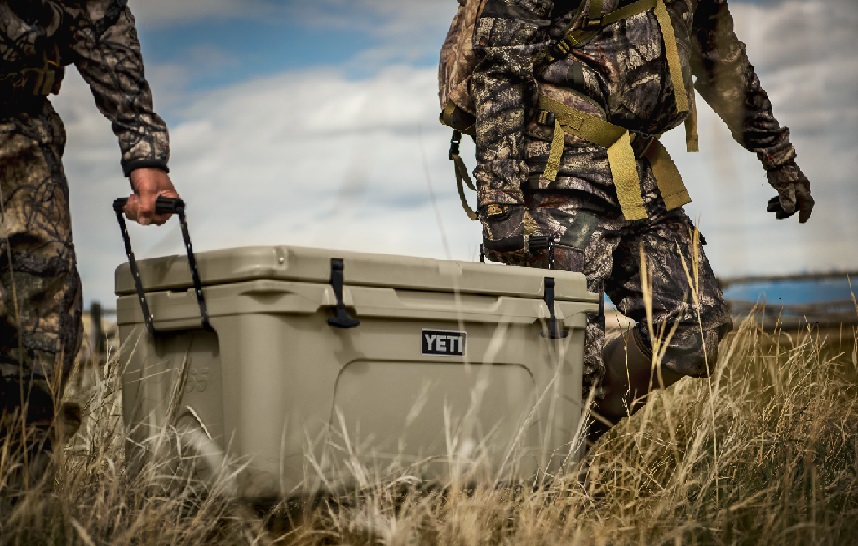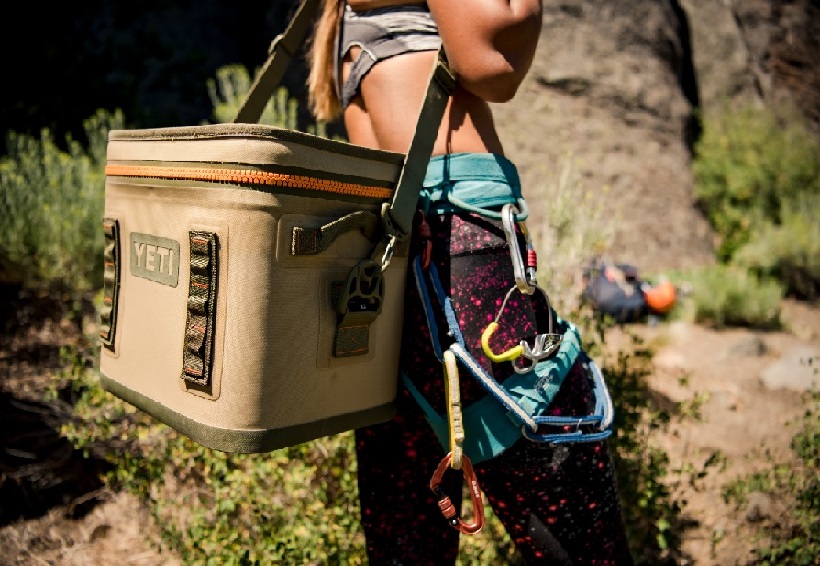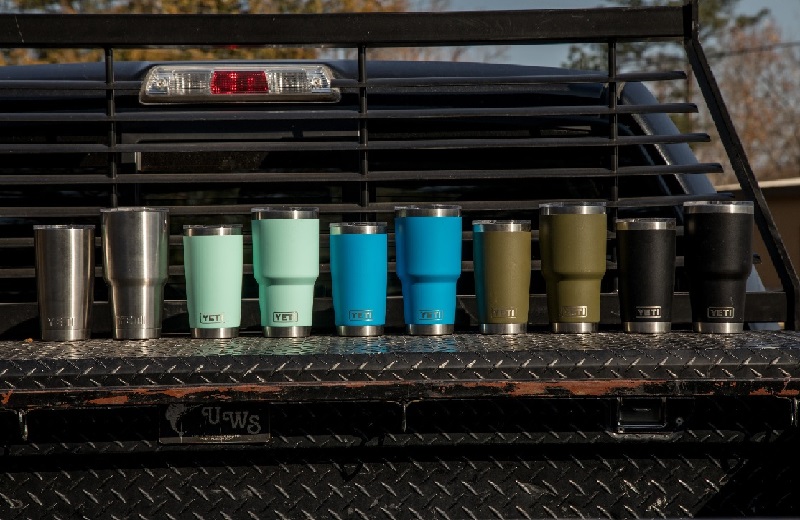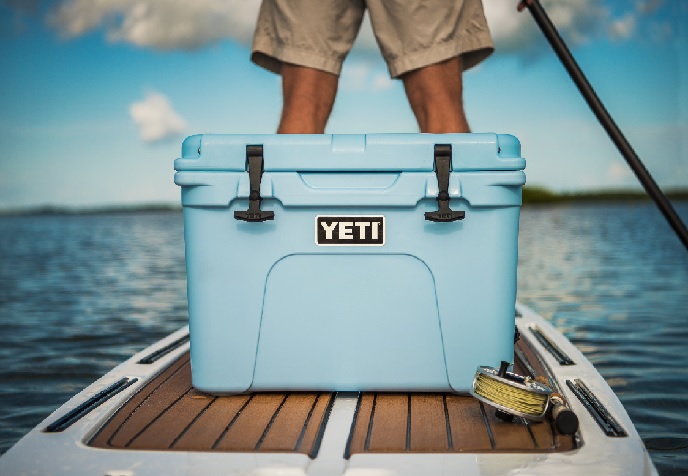
YETI yeti.com (formerly YETI Coolers) is an Austin, Texas-based outdoor consumer goods company. With luxury products including high-end coolers, stainless steel drinkware, and branded apparel, YETI is the classic American entrepreneurial story. It was founded in 2006 by Roy and Ryan Seiders who were serious outdoor enthusiasts frustrated by the cheaply built coolers available on the market. These two brothers found a need in the market, set out to fill that need, and ended up with a very successful business model. We recently spoke to Blake McHenry, VP of Talent at YETI, about some of the company’s unique successes and challenges.
Tell us a little about the background of YETI, how did the company get its start?
 It’s a really cool story. YETI was started by two Austin born and raised brothers, Roy and Ryan Seiders, who were avid outdoorsmen growing up. They frequented the Gulf Coast for fishing, and quickly got tired of their coolers breaking when used as a standing mount to cast off of. Their dad was an entrepreneur and that mindset was deeply instilled in the Seiders brothers from an early age; They created a rather lofty goal for themselves and decided to develop the world’s most durable cooler.
It’s a really cool story. YETI was started by two Austin born and raised brothers, Roy and Ryan Seiders, who were avid outdoorsmen growing up. They frequented the Gulf Coast for fishing, and quickly got tired of their coolers breaking when used as a standing mount to cast off of. Their dad was an entrepreneur and that mindset was deeply instilled in the Seiders brothers from an early age; They created a rather lofty goal for themselves and decided to develop the world’s most durable cooler.
When they developed the original YETI Cooler, the hard-side cooler, it was priced completely different than any Coleman or Igloo cooler: it was $200 and up at retail (depending on the model). Regardless, it took off and the Seiderses spent countless weekends traveling across Texas with nothing but a van full of coolers to sell. Buyers quickly recognized the product quality and the attribute that came in addition to the durability, which was ice retention. The YETI Cooler became a staple piece of gear for offshore fishing trips, backcountry hiking, and long hunting trips.
Can you explain how the company has evolved since its genesis?
YETI reached the 10 year milestone in 2016. Over those 10 years, the core product line has expanded, gear and  accessories categories have been added, and the distribution has significantly grown. For most of the Company’s history, YETI relied on independent sales representatives; this changed in June of 2013, when the first internal sales team was brought onboard, allowing for a more proactive effort in expanding the dealer base. This stood for a huge turning point of company expansion and growing brand awareness.
accessories categories have been added, and the distribution has significantly grown. For most of the Company’s history, YETI relied on independent sales representatives; this changed in June of 2013, when the first internal sales team was brought onboard, allowing for a more proactive effort in expanding the dealer base. This stood for a huge turning point of company expansion and growing brand awareness.
Shortly following the internalization of the sales team, YETI introduced two significant core product categories: the Hopper & the Rambler. The YETI Hopper is a soft-sided alternative to the hard size cooler, it provides more versatility and is lighter and more portable. The Rambler speaks to the stainless steel drinkware line. The Rambler in particular, allowed for the opportunity to reach outside the typical hunting and fishing product market while providing a lower point of brand entry for customers.
How does the company approach innovation, and what does the process look like?
 We feel like we have been at the forefront of innovation in our categories and that is well documented. Over the last several years, we’ve worked hard to build out our innovation team from 10-12 engineers and designers to our current team of over 50. We’ve invested in becoming a leader of sustainable innovation for the long haul - one of our company core values is “be authentic and innovative with our brand and products” and we plan to continue doing just that. To have the research, development, and design capability in-house has given us more capability to accomplish innovation; After ideation we can answer how market research informs an idea, what our ability is to actually make the product the way we would want to make it as a YETI premium product, and if the market will embrace the product. We have significant market research capability and are committed to continuing to build our innovation capabilities robustly.
We feel like we have been at the forefront of innovation in our categories and that is well documented. Over the last several years, we’ve worked hard to build out our innovation team from 10-12 engineers and designers to our current team of over 50. We’ve invested in becoming a leader of sustainable innovation for the long haul - one of our company core values is “be authentic and innovative with our brand and products” and we plan to continue doing just that. To have the research, development, and design capability in-house has given us more capability to accomplish innovation; After ideation we can answer how market research informs an idea, what our ability is to actually make the product the way we would want to make it as a YETI premium product, and if the market will embrace the product. We have significant market research capability and are committed to continuing to build our innovation capabilities robustly.
The other thing that we’ve done here in the last year is that we’ve built out a YETI innovation center here in Austin. That’s where we determine the if’s and how’s of making a new product. It’s been quite an investment in innovation and we’re proud of the capabilities that that center has brought us. Innovation has always been and will always continue to be the core of YETI’s identity.
We see that YETI is very active on social media. Can you talk about using social media as a marketing channel, especially coming from the lens of a Middle Market company?
We’ve historically invested significantly in the brand and in communication under the marketing domain, and social media is a meaningful piece of that. It’s efficient, it can be targeted to certain consumer groups, and I think we’ve done a really good job there. In addition to our social media presence, we produce robust content which has been huge for us; We’ve created followers and fans who love the product and brand.
YETI opened its first retail store a few weeks ago, what do you hope to accomplish with a retail store and how do you see that changing the brand in the future?
We’re really proud of it because it gives you a real sense of the core of the brand and the product, the spirit and the energy of the company, the core values are alive there. It’s a showcase for the product and the brand, and it’s also a place for consumers to go in, buy a YETI product if they want to, and it captures the essence of the brand and the product.
Does YETI do community outreach? What kind of activities do you do and how does this impact the organization and the employees?
Yes, we do meaningful community outreach within the Austin area (our headquarters) and beyond. For example, we have a disaster relief group for when there are natural disasters and keep a bank of coolers for distributing food, water, and other relief services.
A year ago we added a Day of Service program for every YETI employee. Every employee has one fully-paid day per year to go out into the Austin community, and we’ve partnered with several organizations at which employees can volunteer their time. That has been really meaningful to the employees and for YETI: to empower our employees to give back to the local community through these different partnerships and allow them to choose an organization that is most meaningful to them. We get these beautiful stories from employees about the impact they were able to make, and an emotional attachment is formed between the employee and giving back. Whether you have a passion for the elderly, children, or animals, YETI has stood behind employees supporting these causes and I can’t really express in words how inspiring and compelling it has been for our employee-base.
What are some advantages of working for a Middle Market company like YETI?
If you compare it to a startup small company, there are practical advantages to working for a Middle Market company. While an established business allows for upgraded benefits and more market-level wages, there are also benefits such as service and outreach that smaller companies aren’t able to support.
YETI hasn’t surpassed the point of being a “big” company, and our employees in the building know one another. We have roughly 450 employees, pretty small compared to the strength of the brand and the product, and we’re growing rapidly. When you have 450 employees, there’s a friendliness of knowing people, and we strive to keep it that way as we go forward and get bigger.
The other part of it is we’re still growing, and we’re planning to grow. As an employee you’re part of something you get to keep building out, evolving, and developing. You’re part of a real growth-oriented culture in business. It’s a really cool place to work!
What is next for YETI and what are you excited about?
A lot! We’re excited about our innovation opportunities and to bring new, great products to market. We’re also beginning to globalize the company both in terms of commercializing and in terms of the supply chain - we have a lot of room for growth on the global level. Finally, we are striving daily to be a better partner to our dealers, and that’s everything from systems to processes to relationships. We want to build customer loyalty for the long term, which will help us continue to grow for the long haul.
